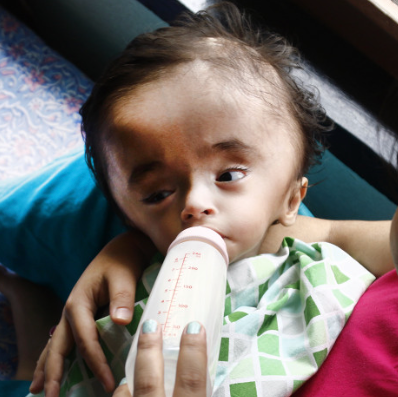Every patient in the hospital has a story and an experience.
It was a horrific car crash. On the way home from swim practice in 2004, eighteen-year old Brian Boyle’s future changed in an instant when a dump truck plowed into his vehicle. He was airlifted to a shock-trauma hospital. He had lost sixty percent of his blood, his heart had moved across his chest, and his organs and pelvis were pulverized. He was placed in a medically-induced coma and had to be resuscitated eight times. When Brian finally emerged from the coma two months later, he had no memory of the accident due to the concussion he sustained in the crash. He could see and hear, but not move or talk. Unable to communicate to his doctors, nurses, or frantic parents, he heard words like “vegetable” and “nursing home.”
If he lived, doctors predicted he might not be able to walk again, and certainly not swim. Then, miraculously, Brian clawed his way back to the living. First blinking his eyelids, then squeezing a hand, then smiling, he gradually emerged from his locked-in state. The former swimmer and bodybuilder had lost one hundred pounds. After three years in recovery, he staged what many consider to be one of the greatest comebacks when he crossed the finish line at the Hawaii Ironman triathlon.
Brian is now a published author, healthcare writer, and international healthcare advocate. As one of the leading voices in the field of patient safety, he has given over 150 keynote presentations all over the world for all audiences of healthcare providers regarding the topics of the patient experience, innovation, quality of care, gratitude, effective communication, and patient safety. He also gives a variety of teaching seminars and interactive workshops on these topics, and has participated in several global programs regarding patient safety and quality of care.
The observations that Brian made during his time in the hospital truly inspired him and helped him understand how important the role of communication is between the patient and healthcare provider. When he was able to learn how to talk again, he soon discovered that the power of the voice is amplified when the message is of gratitude, that a simple smile cannot be underestimated, and that body language and tone of the voice are critical components within the hospital room.
In his presentation, Brian offers a rare glimpse of what the patient and family are going through and covers everything that both he and his parents wish they had in the hospital. Brian also provides gratitude and vital information that will inspire caregivers to implement new and innovative ways of providing care, and guidance for families when facing an unexpected tragedy.
Brian’s story about catastrophe, survival, and transcending all odds has initiated new and innovative strategies for improving patient safety and quality of care on an international level, as well as serving as a learning experience for healthcare providers of all backgrounds. At the very heart of Brian’s story and presentation is his appreciation and gratitude for the work that healthcare providers do for their patients.
Throughout his healthcare advocacy, Brian has been recognized as one of Men’s Health magazine’s ’20 Heroes of Health & Fitness’ and awarded several national awards from the American Red Cross, Johns Hopkins, and the ‘Champion of Change’ award from President Obama at the White House in 2012.
His story has been featured on the Ellen DeGeneres Show, NBC’s Today Show, ESPN, and several other programs throughout the country that have earned Emmy nominations and awards. His journey of courage and determination has touched the hearts of many and his story and the message it carries has been celebrated around the world.
When it comes to the patient experience, Brian has become a voice for the voiceless.







